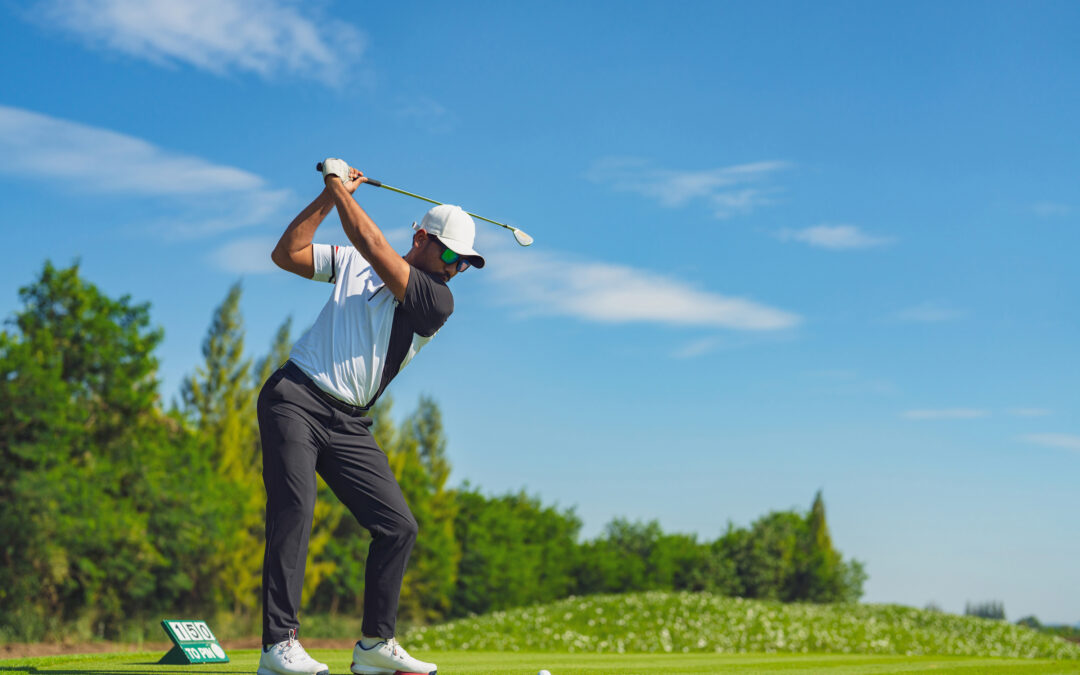I’d say that at least 99.9% of the students who show up to my trainings are looking to become better at something. They want to get better at creating good relationships or they want to get better at their careers. They want to be better in their physical health or better at achieving the goals they set for themselves. Once we’ve taken them through processes to release any negative emotions or beliefs that are preventing them from getting better, and once we’ve taught them how to set effective goals, it’s time for them to take action to get better at whatever they wanted to get better at. And of course, that involves practice.
Effective practice is more than just repeating something over and over. It’s fine to play musical scales or to hit some balls at the driving range, but if your goal is to become a professional musician or professional golfer, you need your practice to be purposeful.
I read a story about the professional golfer Dan McLaughlin. Dan was older than most people when he decided he wanted to break into professional golf. He began working on his golf and started what he called “The Dan Plan” to become a pro. By the way, Dan had never actually played even 18 holes of golf. A golf coach approached him on the driving range and asked what he was doing. He looked at the coach and said, “I’m practicing my golf.” The coach then said, “No, you’re not. You’re hitting something with a club, but you’re not practicing what you’d be doing out on the golf course.”
The coach went on to say, “What you’re doing right now is dropping a ball then just swinging and hitting, then dropping another ball and swinging and hitting, and dropping another ball and swinging and hitting. When have you ever seen someone do that on the golf course?” Dan’s eyes got really big and he said, “Never.”
The coach said, “Let’s think outside the box for your practice. Why don’t you pull out a scorecard of a certain golf course? It’ll tell you what the holes look like and how long they are. When you show up at the range, imagine that you’re on that golf course. If the first hole is a par four, decide what club would you use and take that out first. However far you hit your first ball on the driving range, figure out what club you’ll need next, and take that one out. If that hit gets you to the imaginary green, go over to the putting green and hit a couple of putts. If not, hit a chip then go do your putts. Practice as if you’re going to be in a tournament on that course.”
Dan didn’t increase his practice to get better. He transformed his approach to practice. He made his practice purposeful.
Another key to purposeful practice is to be clear on the results you’re trying to achieve. For example, say you have a goal to get your MBA. If you don’t know why you want that degree or what you want to do after you have it, you’ll likely waste some time taking classes that don’t apply to your future. Being an entrepreneur takes different skills than working for large corporations. Working with international nonprofits requires different practices than working for medium-size regional firms. Being clear at the onset will help you determine which MBA courses will help you achieve what you want to achieve. Keeping your ultimate goal in mind will help you stay on track. That’s purposeful practice.
Another part of purposeful practice is focus. You don’t see a professional golfer checking out Facebook between every shot. You see them highly focused. You don’t see an Olympic downhill skier answering a text in the middle of a practice run or even while preparing for a practice run. Athletes have a pregame routine they follow with intensity to help them remain in the zone. Getting into the zone is very important. Getting into the zone allows you to be highly focused on what it is that you’re doing. That’s purposeful practice.
What if you’re not trying to become a pro? What if the improvement you want to make at the gym is to shed a few pounds and get into better shape? Purposeful practice will still get you better results. Too many people who work out simply do the same exercises over and over and then can’t figure out why they stop seeing improvement. They watch TV while working out or catch up on emails on their phones. Serious bodybuilders don’t do this. They switch out their routines and focus on what they’re doing. You may not aspire to be at their level physically, but you’ll reach your own physical goals a lot faster by following their example.
Purposeful practice also applies to relationships. To get better at relationships, you need to be willing to transform the practices you’ve used in the past. You need to be clear on the result you really want. And, when you are relating to the other person, you need to focus without distractions. For example, with my kids, I’ve had to transform my approach several times as they’ve grown from being toddlers to young adults. I’ve always stayed very clear that I want our relationship to be open, evolving, and close. And when I’m with them, I am totally present during our time together.
Look at the action you are taking toward those things you want to achieve and ask yourself if they are purposeful. If not, you now have some ways to make your practice more effective!
Mahalo,
Dr. Matt
Empowerment, Inc. is the leading authority on NLP, Huna, Mental and Emotional Release®, and Hypnosis.
For more information, visit us at www.empowermentinc.com




